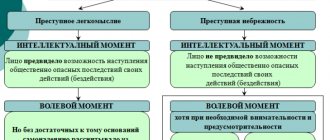According to Russian criminal law, for every criminal offense committed, the perpetrator must suffer a proportionate but fair punishment. The same legislation provides that in certain situations the imposed punishment can be mitigated, and in some cases, completely canceled. The mitigation of punishment is within the competence of the legislative authorities, and they have the right to decide on mitigation of punishment for a whole group of persons.
The right to amnesty is enshrined in the main legislative document - the Constitution of the Russian Federation.
Amnesty is often confused with pardon. These two concepts have something in common, but there are also significant differences. It can be said that an amnesty, like a pardon, implies the complete or partial annulment of the legal consequences of committed acts classified as crimes. Amnesty is carried out out of court.
In the strict sense of the word, amnesty means an act drawn up by the State Duma of the Russian Federation, as the highest legislative body of power, according to which a certain circle of people are exempted from criminal liability and receive the right to a reduced sentence or early expungement of a criminal record.
Many years of work experience allows me to act as an amnesty lawyer in St. Petersburg. I provide consultations and provide practical legal assistance on the application of amnesty.
| The layer's services | Cost, rub. |
| Telephone consultation | For free |
| Legal advice during a personal meeting with examination of documents | from 5 000 |
| Work of a criminal lawyer within the framework of the declared amnesty | from 30 000 |
Legal essence of amnesty
Paradoxically, the legal nature of the amnesty is not entirely clear. Some experts argue that the act is regulated by criminal law. According to others, amnesty is one of the institutions of state law. Still others take an intermediate position, arguing that the nature of the institution is dual, that is, it has civil and criminal law bases. In any case, the act of amnesty cannot be considered an act of criminal law, therefore, when drafting it, no changes are made to the Criminal Code of the Russian Federation.
The existence of an amnesty does not negate the criminality of the acts described in it. Moreover, these acts committed outside the amnesty period entail the same penalties. The mitigation of the sentence under the amnesty in no way indicates the bias of the sentence imposed by the court. A person prosecuted and granted amnesty is considered to have been justifiably accused, and therefore does not receive the right to rehabilitation. This document can be considered an act of mercy on the part of the state.
Article 84 of the Criminal Code of the Russian Federation contains some explanations of the features of such a document as an amnesty. In particular, it says that mitigation of punishment is applied not to individual persons (which is the difference from pardon), but to an entire category of persons who cannot be listed by name. But the amnesty act provides an extremely clear description of this category. This may include women, minors, and persons over a certain age.
Will State Duma deputies sign an amnesty in Russia - latest news
Relatives of the prisoners, and the prisoners themselves, continue to wait for good news from the authorities. Many are interested in whether Putin will sign a criminal amnesty in February 2022? It is still difficult to answer this question unambiguously.
On December 23, 2022, Putin held a large press conference, at which journalists and bloggers asked the Russian leader questions that interested them. Those who managed to talk with the President most often asked about social, public, economic and political aspects of life.
The famous performer, founder of the Leningrad music group, RTVI general director Sergei Shnurov also attended the conference, where, like many others present, he planned for Putin.
Unfortunately, Shnurov was unable to communicate with the Russian leader and get an answer from him on the topic of interest. He told reporters what he wanted to ask the president.
Sergei Shnurov planned to find out whether V.V. Putin will hold a major amnesty for prisoners in criminal cases in the near future. According to the musician, nowadays prisons are characterized by a tough character.
Moreover, not only Russian, but also foreign. And no one, not a single representative of the government can solve this problem. Shnurov suggested that to solve this problem, fewer prisoners should be imprisoned, and those already in prison should be released. In his opinion, prison does not correct a person, but cripples him.
The musician recalled that Putin had already declared an amnesty several times. Then the crime rate decreased, and along with it, the president’s rating also increased.
Legal consequences
If the amnesty is determined by the State Duma of the Russian Federation, then its applicability to a specific person is determined by the court or prosecutor. The adoption of this document has the following legal consequences for persons involved in the commission of a crime:
- Complete exemption from criminal liability.
- Release of previously convicted persons and those serving a sentence from further serving it.
- Reducing the term of punishment (imprisonment, forced or correctional labor).
- Changing the type of punishment to a lighter one.
- Elimination of additional punishment.
- Expungement of a criminal record.
Reason for declaring amnesty
In Russia, amnesties were announced rather traditionally. For example, some of them were dedicated to a specific holiday. In 1551, an amnesty was declared by the Stoglavy Cathedral due to the celebration of Easter. Similar expressions of the will of the authorities manifested themselves during significant events of the royal court or occurring in the royal family (accession to the throne, illness of a member of the royal family).
There are also known cases of amnesty for prisoners on the occasion of signing important documents. During the Soviet period and in modern Russia, amnesties became periodic. In the USSR, the act was drawn up in honor of the anniversary of the October Socialist Revolution. Currently, the starting point is the date of the Great Victory. The frequency of signing the act is 10 years, that is, the nearest amnesty for Victory Day is expected only in 2025.
In a number of cases, the signing of the amnesty act was purely political in nature. In 1994, an amnesty was declared for the participants of the State Emergency Committee, as well as for the participants in the events of August 1993. Political scientists believe that this was not a completely successful political move, since as a result the historical picture of everything that was happening was disrupted and now it is difficult to judge the degree of guilt of those involved. But mitigation of punishment by the will of the state legislative body may have more positive aspects than negative ones.
Another reason is the change in the foreign policy situation (amnesty of 1945). Finally, with the help of an amnesty, the problems of overcrowding in prison colonies can be solved.
How often is amnesty held in Russia?
Amnesty is carried out on holidays approximately once every 5 years. The last one took place 6 years ago. In 2022, deputies of the State Duma came up with an initiative to hold an amnesty in criminal cases in honor of the 75th anniversary of the victory in the Second World War. But that did not happen.
The coronavirus pandemic has made adjustments and has affected the deterioration of the socio-economic situation. The law on reducing sentences for convicts was postponed, but hope for a commutation of punishment remained. In previous years, the government issued decrees to mark the anniversaries of the victory and the dates of adoption of the Constitution.
The 30th anniversary of the introduction of the Constitution will be celebrated in 2023. 35 years in connection with the final withdrawal of troops from Afghanistan - in 2024. The 2022 amnesty in Russia in criminal cases will take place if deputies find grounds for it.
The only document on the introduction of amnesty is the State Duma Resolution. A legislative act must be approved by the President of the Russian Federation.
According to the latest news, as of today there is no data on the initiative of deputies to hold an amnesty. When to expect amnesty in criminal cases.
Validity
The decision to grant amnesty is not made spontaneously. In addition to the reasons listed, there are also objective justifications for the state to take such a step. No one can guarantee that a person who has served his sentence in full has taken the path of reform. This indirectly confirms the fact that the convicted person realized his guilt ahead of schedule and needs to be given a chance to adapt to society.
Prison overcrowding is a key problem in the penal system. But at the same time, not a single country in the world openly declares this problem, as this would indicate an increase in crime. Modernization of old prisons entails significant material costs that are not included in the budget.
The high level of unemployment in the country negatively affects the ability to work and receive wages while in prison. This problem is especially evident during the economic crisis. It is the amnesty that allows a certain category of citizens to work honestly and create help for themselves in order to get firmly on their feet in the future.
Do not forget that the state spends money on the maintenance of prisoners. Back in the Soviet Union, prisoners were considered an economically beneficial resource, but today this status is no longer relevant.
Categories of citizens who are granted amnesty
The description of the category of citizens included in the amnesty is given directly in the act itself, so it is impossible to predict in advance that certain prisoners will receive leniency from the state. But many years of practice make it possible to determine which categories are most often mentioned in the document described above. This includes:
- disabled people;
- pregnant women;
- women with at least one child in their care;
- WWII veterans;
- prisoners serving time for minor crimes;
- prisoners suffering from tuberculosis;
- prisoners with cancer;
- persons of a certain age category;
- juvenile prisoners.
In some cases, the amnesty applies to those citizens who did not fall into any of the above categories, but were convicted for the first time. This should also include persons with state awards. Amnesty will never apply to those who have committed serious crimes. We are talking about murderers, rapists, pedophiles and terrorists.
Should we expect a criminal amnesty in the Russian Federation in March 2022?
The last amnesty was held in 2015. This allowed thousands of prisoners to “get rid” of their past and start life with a clean slate. After all, an amnesty involves not just the release of a convicted person from prison, but also the expungement of his criminal record.
It is too early to say whether there will be an amnesty in 2022. The only thing that can be said with certainty is that it will definitely not be held in January, since making such a decision takes a long period of time.
Also, whether the amnesty will be held in 2022 will depend on the epidemiological situation in the country. If the situation does not improve, then there is no point in hoping that the authorities will show humanism.
However, experts predict the end of the epidemic by next spring. In their opinion, it is then that Russia will achieve collective immunity to Covid-19. It is then that the authorities can hold an amnesty and time the event to coincide with such significant holidays as the 105th anniversary of the October Revolution, or the 30th anniversary of the Constitution, which will come in 2023.
If the authorities nevertheless decide to hold an amnesty, then those who have committed non-dangerous crimes and received a relatively short prison term will be released.
First of all, attention will be paid to the following convicts:
- disabled people;
- women with children;
- citizens of retirement age;
- former military personnel;
- liquidators of the accident at the Chernobyl nuclear power plant and the Mayak station;
- persons who have not reached the age of majority.
Meanwhile, many Russians are confident that those who committed a crime through negligence should be released, regardless of its severity. According to them, the prisoner punished himself by committing this illegal act. And in freedom, loving wives and children await him, for whom it is very difficult.
The difference between amnesty and pardon
A more detailed content of such a concept as amnesty is disclosed in Article 84 of the Criminal Code of the Russian Federation. Pardon, as an act of supreme power, is considered in Article 85 of the Criminal Code of the Russian Federation. However, the above articles only touch on the main aspects directly related to the Criminal Code. Based on these aspects, one can only partially find the difference between amnesty and pardon.
The first difference lies in determining the circle of persons to whom the act will apply. Pardon is carried out directly by the President of the Russian Federation, and in relation to a specific person. Amnesty is applicable to an indefinite circle of persons, that is, to any category that may include a different number of people. For example, the amnesty dedicated to the 70th anniversary of the Great Victory exempted from punishment citizens who had state awards or participated in hostilities if these citizens had committed a crime of low severity for the first time. According to available data from the Federal Penitentiary Service of the Russian Federation, this amnesty affected 34 thousand people.
The second difference has already been indirectly mentioned; it concerns the subject making the decision. The pardon procedure is within the competence of the President of the Russian Federation. The convicted person has the right to submit a corresponding petition through a special commission created in each region of the country. Bodies of the executive system are directly involved in the consideration and acceptance of such a petition. The act of amnesty is drawn up by the State Duma. In the Russian Federation, special regional authorities have been created to deal with amnesty issues.
The documents also differ in their legal consequences. If the decision on pardon may determine the reduction of the term of imprisonment or the replacement of a prison term with a more lenient punishment, then the amnesty may imply, among other things, exemption from criminal liability before actual conviction, as well as exemption from additional punishment (payment of a fine, restriction of freedom).
Finally, the fourth difference is the difference in the mechanisms for implementing procedures. The amnesty is not announced at the request of officials, but is timed to coincide with some event significant for the state. Pardon occurs only after a petition has been drawn up by the convicted person. The pardon procedure is strictly regulated by regulatory documents, such as the Criminal Executive Code of the Russian Federation and the Presidential Decree “On pardon commissions in the territories of the constituent entities of the Russian Federation,” which approves the regulations on the procedure for considering applications for pardon in the Russian Federation.
There is another subtlety in the difference between pardon and amnesty. The fact is that the decision on amnesty, after entering into force, becomes a new regulatory document that spells out new legal norms. The decision to pardon does not entail changes in legislation.
Public opinion
It is quite difficult to unambiguously assess public opinion about amnesty, since in modern Russia, as in the Soviet period, such procedures were viewed with some distrust. Many scientists and politicians actively oppose amnesty, since there is a high probability that a huge number of people with antisocial motivation will be released. This means that they will again begin to commit similar or even more serious crimes. In addition, the amnesty calls into question the fairness of the criminal law, according to which absolutely all categories of citizens are equal before the law.
Negative attitudes towards amnesty increased after dangerous criminals were released in 1953 and 1957, causing a sharp increase in the number of serious crimes in the country. Often they were committed by previously amnestied persons.
But one cannot fail to note the positive aspects of the amnesty. It implements the principle of humanism, which is an integral principle in the field of criminal law. Research shows that modern amnesties are considered more effective, and recidivism (the proportion of repeat offenders) among those who were released early does not exceed 5%.
"Cruel and Merciful"
0
See all photos in the gallery
But did this film have any real basis? Did unruly criminals really capture entire settlements? Did Beria really calmly release hundreds of thousands of professional criminals from the camps? Or is all this just a legend created after the collapse of the Beria clan? A little over two weeks after Stalin’s death, the chief security officer of the Soviet Union, Lavrentiy Beria, who retained his posts after the death of the leader, sent a note to the Presidium of the Central Committee (as the Politburo was called in those days) with a bold idea - to declare a large-scale amnesty, since the camps were literally overcrowded and there is no need for this now. According to Beria, out of the 2.5 million inhabitants of the Gulag, no more than 220 thousand people could be called dangerous state criminals, convicted under political articles, as well as for sabotage.
What is the probability of getting an amnesty?
Article 84 of the Criminal Code of the Russian Federation determines that the main document defining the rules of amnesty is an act that specifies the circle of persons who are exempt from punishment. However, the procedure itself, that is, its implementation mechanism, is not spelled out anywhere. Each such act specifies a list of articles to which this document applies. But the fact that the convicted person belongs to the specified category does not guarantee his release.
The applicability of the amnesty to a specific person is determined by the competent authorities, including the prosecutor's office and the court. Sometimes the solution to this issue lies within the competence of the investigative authorities. For example, an amnesty is declared at the moment when an investigation is underway against a suspect (the category of amnestied and the article correspond to the content of the act), then the investigator issues an order to terminate the criminal prosecution.
Practice shows that not all persons are released under an amnesty, even if they are entitled to a reduced sentence. Everything depends on the decision of the administration of the correctional institution. If she considers that the prisoner must serve the full sentence, then the chances of release are sharply reduced.
It is quite possible that in this way pressure is put on the convicted person or there is banal extortion. A criminal lawyer will help you protest an unfounded refusal of an amnesty, and the right of a convicted person to receive legal assistance is enshrined in law. You can contact a lawyer to prepare a petition to dismiss the case in connection with the amnesty.










